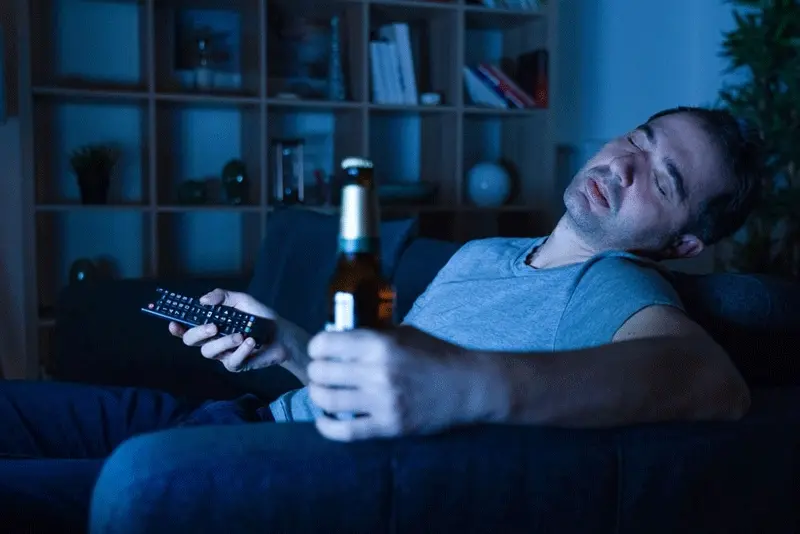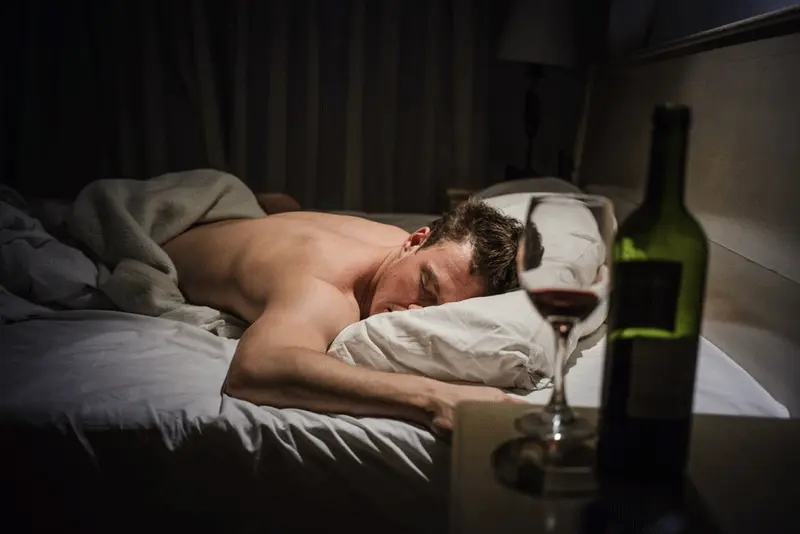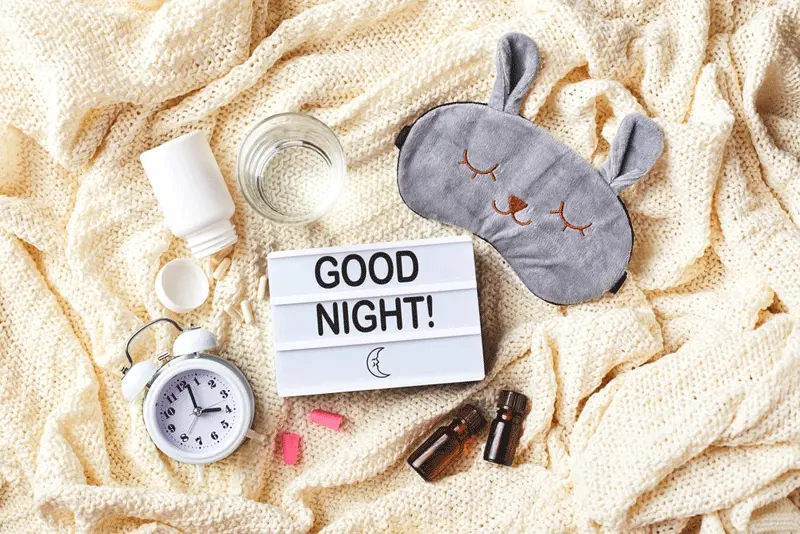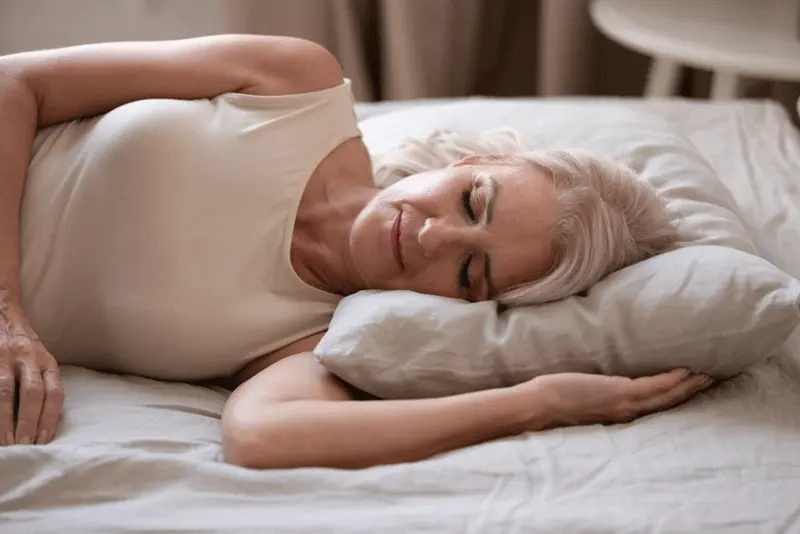How to Stop Snoring After Drinking: 5 Proven Tips
Aug 20th 2023

Are you tired of your picturesque nights turning hoarse with the sounds of snoring after a night out? Does a glass—or two—of a fine Cabernet or cold lager lead to disrupted sleep for you and those around you? You are not alone. A significant number of people across the globe face this issue. Drinking can lead to increased snoring, spoiling what should otherwise be peaceful nights. Luckily, there's hope for you party animals and wine connoisseurs. Keep reading as we reveal five proven tips on how to stop snoring after drinking. Say goodbye to the noisy nights and embrace serene slumber today!
While it is best to avoid drinking alcohol altogether, some tips to help prevent snoring after drinking include sleeping on your side, doing anti-snoring exercises, and using mouthguards or mouthpieces. Additionally, practicing good sleep hygiene, such as avoiding sleep deprivation and being well-hydrated, can help. If you have persistent snoring issues, it is important to consult with a doctor to rule out any underlying health conditions or discuss further treatment options.
Understanding Snoring and Alcohol

Snoring is a common issue affecting many people, disrupting not only their sleep but also their partners. It occurs when air flow through the mouth and nose is partially blocked during sleep, causing the tissues in the throat to vibrate and produce those familiar snoring sounds. While various factors contribute to snoring, alcohol consumption has been closely linked to its occurrence and intensity.
Imagine this scenario: You enjoy a night out with friends, indulging in a few drinks before heading off to bed. In the middle of the night, your partner wakes you up, complaining about excessive snoring that's preventing them from sleeping. Sound familiar? It's an all-too-common experience for many.
When it comes to understanding the connection between snoring and alcohol, several factors come into play. First and foremost is alcohol's impact on sleep quality and patterns. While it may seem like alcohol helps you fall asleep faster, it disrupts the normal sleep cycle. Alcohol suppresses REM (rapid eye movement) sleep, crucial for restorative rest. As a result, you may find yourself experiencing fragmented sleep throughout the night.
Additionally, alcohol acts as a muscle relaxant, causing the muscles in your body to become floppy or lax, including those in your throat. This relaxation of throat muscles leads to increased airway resistance and obstruction, making it more likely for snoring to occur. The vibrations caused by air passing through these narrow passages create those distinct snoring sounds.
Picture this: When you consume alcohol, your body enters into a state of relaxation that extends beyond mere mental relaxation; physical relaxation becomes prevalent too. And when relaxed throat muscles combine with disrupted sleep patterns, it becomes a recipe for intensified snoring.
Now that we have explored the relationship between snoring and alcohol from a broader perspective, let's take a closer look at the specific impacts of alcohol on sleep and snoring.
Alcohol’s Impact on Sleep and Snoring

The effects of alcohol on sleep are multi-faceted, influencing various aspects that can contribute to snoring. By understanding these impacts, we can gain insights into why reducing or eliminating alcohol intake can significantly help in the quest to stop snoring after drinking.
One such impact is the delay of REM sleep, as mentioned earlier. REM sleep is a vital phase during which dreams and memory consolidation occur. When this phase is disturbed or delayed due to alcohol consumption, it disrupts the natural rhythm of your sleep cycle, ultimately affecting the quality of rest you experience.
Another key impact revolves around the concept of muscle relaxation. As alcohol enters your bloodstream and circulates through your body, it causes general muscle relaxation, including in the muscles that support your airway. This relaxation leads to narrowed air passages and increased resistance to airflow, increasing the likelihood of snoring.
Alcohol also leads to dehydration, particularly in the throat and mouth. Dehydration causes dryness in these areas and reduces natural lubrication, making it easier for tissues to stick together and obstruct airflow during breathing. Dryness in the throat can exacerbate snoring by creating irritation and inflammation, contributing to further airway blockage.
Consider this: Alcohol’s influence on sleep patterns doesn’t just enhance the chances of snoring; it can also aggravate existing conditions like obstructive sleep apnea (OSA), a severe form of airway obstruction during sleep. OSA poses significant health risks, including increased heart disease and stroke chances.
With a deeper understanding of how alcohol impacts sleep and contributes to snoring, we’re better equipped to explore practical tips for stopping snoring after drinking.
Five Practical Tips to Stop Snoring After Drinking

If you snore after indulging in a few drinks, fret not. There are practical steps you can take to alleviate the issue. Let's explore five proven tips to help you stop snoring after drinking.
Stay Hydrated: Alcohol consumption can lead to dehydration, causing the nasal and throat tissues to become dry. This dryness can contribute to snoring. To counteract this effect, drink plenty of water before and after consuming alcohol. Staying hydrated can help keep your airways moist and reduce the chances of snoring.
Elevate your Head: Snoring is often intensified when lying flat on your back, as this position can cause the tongue and soft palate to collapse backward and obstruct the airway. To prevent this, try using an extra pillow or raising the head of your bed slightly. By elevating your head, you create a more open airway passage, which can reduce snoring.
Sleep on your Side: Sleeping on your back allows gravity to pull the relaxed muscles in your throat downwards, leading to increased snoring. Instead, try sleeping on your side. This sleeping position helps keep the airway open and allows smoother airflow, minimizing snoring sounds.
Avoid Sedatives: Alcohol itself acts as a sedative by relaxing the muscles, including those in the throat. When combined with other sedating substances like certain medications or sleep aids, it can further exacerbate snoring problems. To avoid this, be cautious about taking any sedatives or sleep-inducing substances before bed.
Practice Good Sleep Hygiene: Establishing healthy sleep habits can significantly reduce the incidence of snoring after drinking. This includes maintaining a consistent sleep schedule, ensuring a comfortable sleep environment free of allergens such as dust mites, and avoiding excessive fatigue or sleep deprivation.
Imagine you’ve attended a celebration where alcohol flowed freely. As the night winds down, you return home hoping for a peaceful slumber. However, shortly after dozing off, your partner nudges you awake, frustrated by the loud snoring emanating from your side of the bed. By following these practical tips, you can minimize the disruptive effects of snoring and enjoy a more restful night's sleep.
- If you snore after drinking alcohol, you can follow five practical tips to help alleviate the issue. These include staying hydrated, elevating your head while sleeping, sleeping on your side, avoiding sedatives before bed, and practicing good sleep hygiene. By incorporating these strategies into your routine, you can minimize disruptive snoring and enjoy a more restful night's sleep.
Sleep Positioning and Breathing Tips

In addition to the general tips mentioned earlier, specific sleep positioning and breathing techniques can further aid in reducing snoring after drinking. Let's take a closer look at these strategies.
Side Sleeping: As mentioned previously, sleeping on your side can help prevent the collapse of the tongue and soft palate, which contribute to snoring. To promote side-sleeping, consider using a body pillow or placing a cushion behind your back to keep yourself in this position throughout the night.
Nasal Dilators: These small devices are inserted into the nostrils to help enhance airflow and reduce nasal congestion. By improving nasal breathing, nasal dilators can potentially decrease snoring associated with alcohol consumption.
Breathing Exercises: Engaging in regular breathing exercises can strengthen the muscles of the throat and improve overall airflow during sleep. Some common exercises include pursed lip breathing, humming, and tongue exercises like pushing it against the roof of your mouth.
Continuous Positive Airway Pressure (CPAP) Machines: If you struggle with severe snoring or have been diagnosed with sleep apnea, a CPAP machine may be recommended by your healthcare professional. CPAP machines provide a constant flow of air pressure during sleep, helping to keep the airways open and reducing snoring episodes.
Seek Professional Help: If snoring persists despite adopting various self-help methods, it may be beneficial to consult a healthcare professional specializing in sleep disorders. They can assess your condition, provide personalized recommendations, and offer appropriate medical interventions if necessary.
Picture this: You’ve tried sleeping on your side and even incorporated some breathing exercises, but snoring continues to disrupt your sleep after a night of socializing with friends. Seeking guidance from a sleep specialist can provide tailored solutions to address the underlying causes of your snoring, helping you find relief and enjoy peaceful nights again.
Use of Anti-Snoring Devices and Herbal Remedies

When it comes to finding effective solutions for snoring, it's worth exploring the use of anti-snoring devices and herbal remedies. These options can provide relief by addressing the underlying causes of snoring and promoting better airflow during sleep.
One popular anti-snoring device is a mandibular advancement device (MAD), which works by gently repositioning the jaw and tongue to keep the airway open. This can significantly reduce snoring in individuals with obstructive sleep apnea or those prone to tongue-based snoring. By holding the lower jaw forward, MADs help prevent the collapse of soft tissues in the throat, allowing for smoother breathing throughout the night.
Another option is a nasal dilator, which aims to improve nasal congestion and airflow. These small devices are inserted into the nostrils and work by expanding the nasal passages, reducing resistance to airflow and decreasing snoring caused by nasal congestion.
In addition to these devices, various herbal remedies have been used for centuries to alleviate snoring. One example is peppermint oil, which has natural decongestant properties that may help reduce inflammation and promote easier breathing. Some individuals find relief by applying a few drops of diluted peppermint oil on their chest or using a peppermint-infused steam inhalation before bed.
Here is a comparison table highlighting some common anti-snoring devices and herbal remedies:
| Device/Remedy | How It Works |
|---|---|
| Mandibular Advancement Device (MAD) | Repositions jaw and tongue for better airflow |
| Nasal Dilator | Expands nasal passages to reduce resistance |
| Peppermint Oil | Natural decongestant that eases inflammation |
While anti-snoring devices and herbal remedies can be effective in mitigating snoring, it’s important to note that individual results may vary. What works for one person may not work for another, and finding the right solution may require some trial and error. Additionally, it’s advisable to consult with a healthcare professional before trying any new devices or herbal remedies, especially if you have any underlying health conditions or are taking other medications.
Now that we’ve explored the use of anti-snoring devices and herbal remedies, let’s shift our focus to lifestyle adjustments that can help mitigate snoring on a broader scale.
Lifestyle Adjustments to Mitigate Snoring
In many cases, snoring can be linked to certain lifestyle factors. By making a few adjustments, you may experience a significant reduction in snoring episodes and improve your sleep quality. Here are some proven lifestyle changes worth considering:
Maintain a healthy weight: Excess weight can contribute to snoring by narrowing the airways. Losing even a small amount of weight can help reduce the fatty tissues around the neck and throat, allowing for better airflow during sleep.
Establish a consistent sleep routine: Going to bed and waking up at the same time every day can regulate your body’s internal clock and promote more restful sleep. It’s also important to aim for adequate sleep each night (typically 7-8 hours for adults) to minimize fatigue-induced snoring.
Sleep on your side: Sleeping on your back can cause the tongue and soft tissues to obstruct the airway, leading to snoring. Try sleeping on your side instead to keep the air passages open and prevent tissue collapse.
Avoid alcohol and sedatives: Alcohol and sedatives relax the muscles in the throat, increasing the likelihood of snoring. If you’re prone to snoring or have noticed an increase in snoring after consuming alcohol, consider cutting back or avoiding it altogether, particularly in the hours leading up to bedtime.
Keep a clean sleep environment: Dust, allergens, and other irritants in the bedroom can contribute to nasal congestion and worsen snoring. Regularly dusting and vacuuming your sleeping area, washing bedding regularly, and using hypoallergenic pillowcases can help create a cleaner sleep environment.
By implementing these lifestyle adjustments, you have a great chance of mitigating snoring and enjoying more peaceful nights of sleep. However, it’s important to remember that everyone’s experience with snoring is unique, and what works for one person may not work for another. Suppose snoring continues to disrupt your sleep or the sleep of your loved ones. In that case, it may be beneficial to seek professional advice from a healthcare provider who can provide personalized recommendations.
Alcohol Moderation and Sleep Hygiene Practices
Alcohol can have a significant impact on our sleep quality and snoring tendencies. While it may initially seem like a relaxant that helps us fall asleep faster, excessive alcohol consumption before bed can worsen snoring or even lead to more severe sleep disorders like obstructive sleep apnea (OSA). To effectively stop snoring after drinking, incorporating alcohol moderation and practicing good sleep hygiene is crucial.
To begin with, moderating alcohol consumption is essential. Consuming alcohol in excessive amounts or too close to bedtime can relax the muscles in the throat, which increases the likelihood of airway blockage and snoring sounds. Therefore, it is advisable to limit alcohol intake, particularly in the hours leading up to bedtime.
It’s important to note that alcohol isn't the only way to unwind before sleep. Exploring alternatives such as meditation, taking a warm bath, or engaging in relaxing activities like reading a book can promote relaxation without the potential adverse effects on snoring or overall health.
Another aspect of addressing snoring after drinking involves incorporating good sleep hygiene practices. This includes establishing a consistent sleep schedule by going to bed and waking up at the same time each day, even on weekends. Prioritizing sufficient sleep time (typically 7-9 hours for adults) also plays a vital role in maintaining overall well-being and minimizing snoring incidents.
For instance, imagine John enjoys an occasional glass of wine after dinner but often finds himself snoring louder on those nights. After learning about the connection between alcohol and snoring, he decides to moderate his intake by limiting it to one small glass earlier in the evening rather than right before bed. He also establishes a regular sleep routine that includes winding down with a relaxing activity and ensuring he gets enough sleep each night. Over time, John notices a significant reduction in his snoring after drinking.
By combining alcohol moderation with consistent sleep hygiene practices, individuals can significantly reduce the likelihood of snoring after consuming alcohol. However, it is important to remember that underlying factors like obesity or pre-existing sleep disorders can also contribute to snoring, so seeking professional guidance may be necessary for a comprehensive approach.
With an understanding of the importance of alcohol moderation and sleep hygiene practices in combating post-drinking snoring, let’s explore another valuable tool that can aid in monitoring and addressing this issue: snoring apps.
Monitoring Your Progress: The Role of Snoring Apps
In the digital age, technology has provided us with innovative ways to monitor various aspects of our health, including sleep quality and snoring patterns. Snoring apps are designed to track and analyze snoring episodes during sleep, providing users with valuable insights and data to monitor their progress and make informed decisions.
These apps utilize the built-in microphone on your smartphone or wearable devices like smartwatches to detect and record snoring sounds throughout the night. Some advanced snoring apps offer additional features such as sleep tracking, personalized recommendations, and integration with other health-related apps or devices.
By using a snoring app regularly, you can better understand the severity and frequency of your snoring episodes. This data can be useful not only for personal awareness but also for discussing with healthcare professionals. Sharing this information with your doctor can aid in diagnosing potential underlying issues contributing to your snoring after drinking.
It’s important to note that while these apps may provide insights into your snoring patterns, they do not replace professional medical advice or diagnosis. They should be seen as complementary tools to help you monitor your progress and make informed decisions about lifestyle changes or interventions that may be necessary.
For example, Sarah downloaded a snoring app after experiencing persistent snoring episodes following nights out with friends where alcohol was consumed. The app records and analyzes her snoring sounds, giving her a detailed report each morning. After a few weeks, Sarah noticed that her snoring intensity reduced significantly on nights when she practiced alcohol moderation and followed good sleep hygiene practices. Armed with this information, she consults with her doctor, who recommends further evaluation to ensure no underlying sleep disorders contribute to snoring.
Snoring apps can be valuable tools for monitoring and tracking your progress in managing post-drinking snoring. However, it's important to note that they are most effective when used with professional guidance and a comprehensive approach to addressing snoring.
